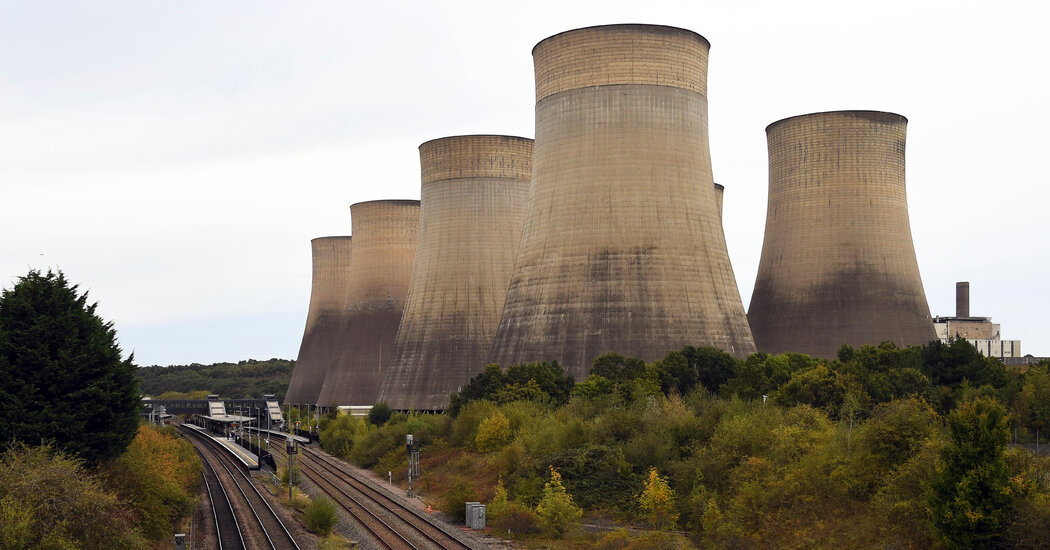The Ratcliffe-on-Soar plant was the last surviving coal-burning power station in a country that birthed the Industrial Revolution and fed it with coal.
Britain, the nation that launched a global addiction to coal 150 years ago, is shutting down its last coal-burning power station on Monday.
That makes Britain first among the world’s major, industrialized economies to wean itself off coal — all the more symbolic because it was also the first to burn tremendous amounts of it to fuel the Industrial Revolution, inspiring the rest of the world to follow suit.
“The birthplace of coal power is turning its back on coal forever,” said Matt Webb, an associate director at the London-based research and advocacy group, E3G.
On Monday, in the middle of England, the end of Britain’s coal era will be marked by the closure of the 2,000-megawatt Ratcliffe-on-Soar facility. Uniper, the power company that operated the plant, said the 750-acre site would be converted to a “low-carbon energy hub.”
The closure comes 142 years after the world’s first coal-burning power plant began producing electricity at the Holborn Viaduct in London in 1882 and, in turn, accelerating Britain’s rise as a major industrial and imperial power.
Coal is the dirtiest fossil fuel. When burned, it produces greenhouse gases that have heated the Earth’s atmosphere and supersized heat waves and storms. While it was long the cheapest and most abundant source of power in many countries, including Britain, it has been replaced in recent decades by gas, nuclear power and most recently, renewables, like wind and solar.
